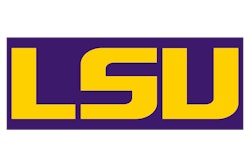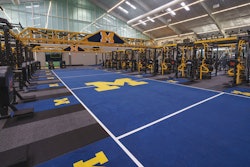All Rights Reserved
BLACKSBURG - Bob Summers and his team of app designers sat in a circle Tuesday morning, planning for everything that could have gone wrong when their latest business venture hit the Apple store.
They've put in 80-hour weeks over the past few months, building a fitness app that takes advantage of the latest in Internet and tablet technology. Launching an app like Fitnet would have been impossible just a few years ago, but now the team had pulled it off just in time for the beginning of New Year's resolutions season.
Everything was ready. Then they waited.
"Our dream would be that we get an email from someone in March saying, 'I've tried a New Year's resolution for the past five years and I've always failed. I found Fitnet and I'm still working out,'" Summers said. "If we get one person like that, we're on to something."
Fitnet, which was built by four locals in Blacksburg, was designed to take advantage of two booming markets: fitness and mobile technology.
It aims to eliminate the excuses for missing a workout by giving anyone with an iPad access to instructors anywhere, anytime.
When users download Fitnet from the App Store, they're given a few different types of workouts to choose from including strength, cardio and yoga. Each category comes with prerecorded videos of instructors walking them through routines.
As you follow along, your iPad's camera watches you and provides feedback based on how well you're moving with the instructor.
Fall out of rhythm and your rating will drop from three to two. Stop moving your arms and you'll be at one. Stop moving altogether and you'll fall to zero.
"This is remarkable," Summers said. "Three years ago, the compute capability and the network capacity would not have been available for us to build this. The direction that we're going is mobile. These tablets are our portal into this whole other world.
"Our main target is women ages 20 to 50 who are already going to the gym. They're already enthusiasts of group fitness, but for some reason they can't get to the gym. Their kids are sick, or just had a tough day at work and they still want to get in 15 minutes of workout. They can do this at their home, at their office or if they're traveling."
The app is available only for iPad right now, but the team plans to build a version for iPhone and Android sometime soon.
Fitnet is completely free, but Summers said at some point it may start charging for premium content like specialized workout sessions. The developers used grants and investment to launch the app. The specific cost was not disclosed.
As the first version sat in the App Store on Tuesday, the Fitnet team seemed relieved but not relaxed. They brainstormed possible issues and started making a list of improvements for version 2.0.
Summers knows the app industry can be hit or miss. If Fitnet is featured by Apple, it could do a million downloads in its first week. If it never rises to the front page of the health and fitness category, it may hardly be found by anyone at all.
But Summers wasn't too worried. He's been here before.
He launched his first computer program in 2001, when he was an undergraduate at Virginia Tech. It was a video conferencing program called iSpQ Video Chat built long before Skype came along.
At that time, personal computers and the Internet had just become powerful enough to compress video files and transmit them. Most people had never used webcams, but Summers said they were starting to warm up to the idea.
ISpQ was overshadowed by a similar product offered by Microsoft for its first few years. But when the software giant discontinued its service and began recommending former customers to iSpQ, things "exploded."
ISpQ began gaining 15,000 to 20,000 new users a day. By the time the dust settled, it had more than 3 million users in 185 countries and was generating more than $1 million in revenue each year. Summers hired about 30 workers and moved the company to the Virginia Tech Corporate Research Center.
Skype eventually launched in December of 2005 and iSpQ lost 30 percent of its users essentially overnight. That blow all but killed the company, but Summers said it's that experience in the viral world of apps that inspires him to keep building new programs that take advantage of the latest capabilities that computers have to offer.
"We had this great app," he said. "I had been working on it for three years or more. And then this opportunity came and I had worked so hard and it happened. This app [Fitnet] may end up the same. There is going to be some luck. I don't know what that luck is going to be. It may be a celebrity using the app and mentioning it in a tweet, but we will need some luck. ? We've worked so hard. So we've done the preparation. Now we see how we do with luck."
Terms and Conditions Privacy Policy































